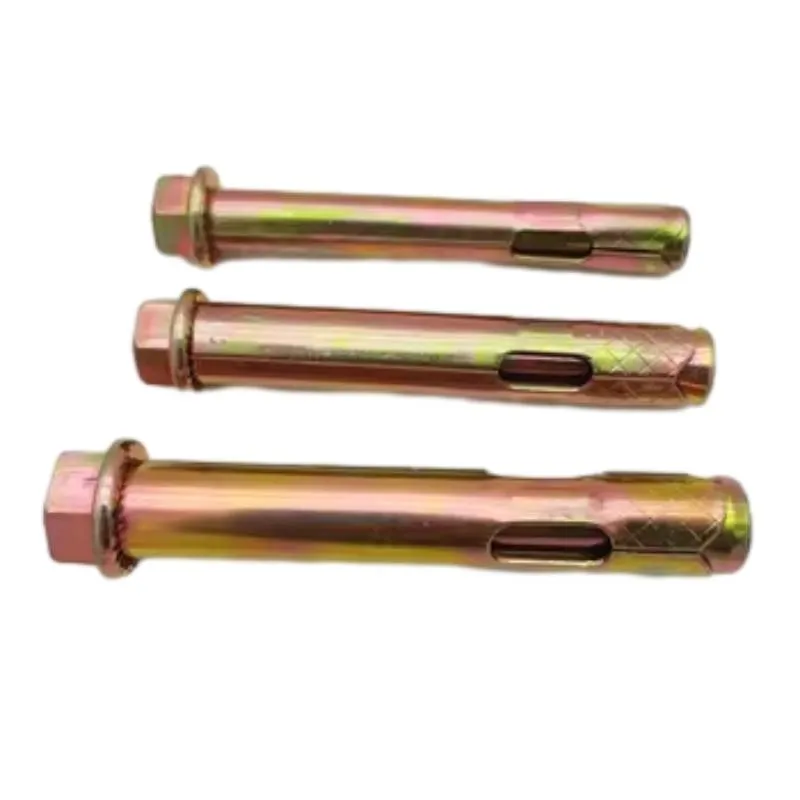Tem . 29, 2024 03:41 Back to list
Understanding the Proper Drill Size for M8 Expansion Bolts in Construction Applications
Understanding M8 Expansion Bolt Drill Size
When it comes to construction and DIY projects, the choice of the right fasteners plays a crucial role in ensuring safety and structural integrity. One common type of fastener is the expansion bolt, which is widely used in concrete and masonry applications. Among the various sizes available, the M8 expansion bolt is notable for its versatility. However, understanding the appropriate drill size for installing M8 expansion bolts is essential for achieving optimal results.
What is an M8 Expansion Bolt?
An M8 expansion bolt is a type of mechanical anchor that consists of a bolt, expansion sleeve, and cone or plug. The M denotes the metric size, while 8 refers to the bolt's nominal diameter in millimeters, which in this case is 8 mm. These bolts are typically used in environments where high tensile strength is required, such as securing fixtures to concrete walls or anchoring heavy equipment.
Why Drill Size Matters
Selecting the correct drill size is critical for several reasons. First, using the wrong drill bit can lead to an inadequate hole size, preventing the expansion bolt from gripping effectively. This can result in a weakened installation, potentially causing the fixture to become loose or fail entirely. Additionally, a hole that is too large can allow the anchor to shift, compromising the load-bearing capacity.
Recommended Drill Size for M8 Expansion Bolts
For M8 expansion bolts, the recommended drill size usually ranges from 10 to 12 mm, depending on the manufacturer's specifications. Most standard M8 expansion bolts require a 10 mm drill bit to create an appropriate hole for the expansion sleeve. However, some variations may have slightly different requirements, particularly if they are designed to accommodate specific loads or environmental conditions. Thus, always refer to the product documentation for precise guidelines.
Installation Process
To install an M8 expansion bolt effectively, the following steps should be followed
m8 expansion bolt drill size

2. Mark the Drilling Site Using a pencil or marker, make an accurate mark where you plan to drill.
3. Drill the Hole Using a hammer drill is recommended for concrete or masonry. Drill straight down to the depth specified by the expansion bolt's specifications.
4. Clean the Hole After drilling, remove any dust and debris from the hole. This can be done using a brush or a vacuum to ensure a secure fit for the expansion bolt.
5. Insert the Bolt Place the expansion bolt into the hole and ensure it is positioned correctly.
6. Tightening As you tighten the bolt, the sleeve will expand against the inner walls of the drilled hole, creating a secure grip.
7. Final Check After installation, ensure that the fixture is stable and securely anchored.
Conclusion
In summary, the M8 expansion bolt is a reliable choice for various fastening needs in construction and DIY projects. Ensuring you use the correct drill size—typically 10 to 12 mm—will significantly influence the success of your installation. By carefully following the installation process, you can maximize the performance of your expansion bolts, enhancing the safety and durability of your structures. Always remember that proper planning and precision make all the difference when it comes to home improvement and construction tasks.


